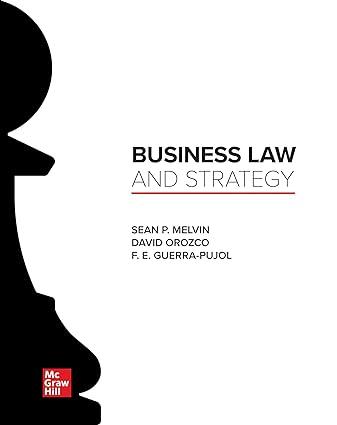Edwards was the primary principal in ETS Payphones and sold investment contracts whereby an investor would purchase
Question:
Edwards was the primary principal in ETS Payphones and sold investment contracts whereby an investor would purchase a pay telephone from an ETS affiliate, then would lease the phone back to ETS for management services in exchange for a fixed monthly fee. Investors always had the option of selling the phone back to ETS at a prearranged price (the buyback guarantee) or canceling the ETS lease entirely and taking possession of the telephone. As the financial position of ETS deteriorated, Edwards sought even more investors to cover losses with earlier investors. Edwards did not register these investment contracts with the SEC. When ETS filed a voluntary petition for bankruptcy, it ceased making payments to investors and would not honor its buyback guarantee. The SEC took enforcement action alleging a violation of the Securities Act of 1933, and Edwards defended on the basis that the investment contracts could not be considered securities because the opportunity did not meet the requirements of the Howey test.
CASE QUESTIONS
1. Analyze the ETS investment contracts in terms of the Howey test.
What factors favor Edwards’s position?
2. Is the fact that Edwards continued to seek investors to cover losses enough to satisfy the “commonality” requirement that the investors’ fortunes be tied together in some way?
Step by Step Answer:

Business Law And Strategy
ISBN: 9780077614683
1st Edition
Authors: Sean Melvin, David Orozco, F E Guerra Pujol





